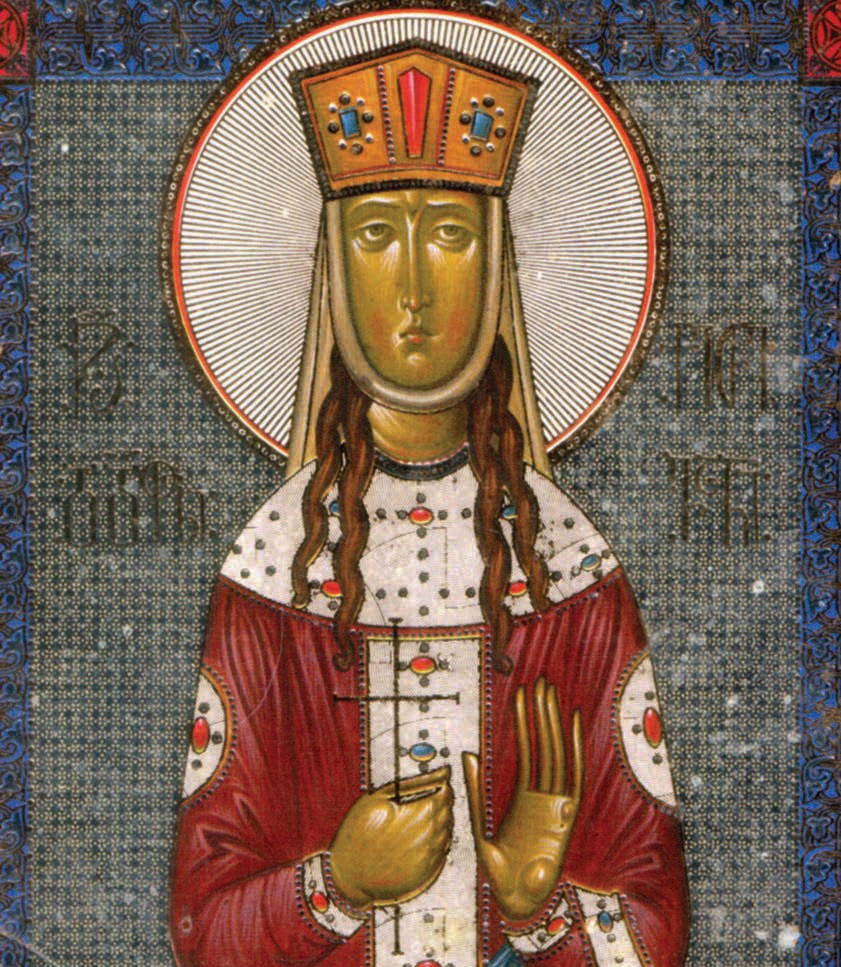Queen Ketevan

Queen Ketevan (died in 12. IX. 1624), was wife of Davit I, King of Kakheti (East Georgia), and mother of Kakhetian King Teimuraz I. In1606, when Iranian ruler Shah-Abbas I, exalted teenager Teimuraz to the throne, Ketevan became the factual sovereign of Kakheti. In 1606, according to the demand of Shah-Abbas I, Teimuraz I sent his youngest son Alexandre and his mother Queen Ketevan to Ganja as hostages. From there, Ketevan was transferred to Ashraf and in 1620, they sent her to Shiraz. Vainly, Teimuraz attempted to release his mother by the help of Russia. Shah-Abbas ordered Imam-quli Khan, Beglarbeg (Governor) of Pharsi and Khan of Shiraz, who was Georgian by origin, either to convert Queen Ketevan to the Muslim faith or to torture her to death. As far as he could, the Beglarbeg delayed the execution of Shah’s order. The Queen firmly refused to take the Muslim faith although she was fully aware of the fate ordained for her. “Neither torture nor the threat of imminent death can induce me to betray Christian Faith,” Queen Ketevan declared. On September 12, 1624 she was tortured to death. Portuguese monks of the Order of St. Augustine, smuggled the remains of Queen Ketevan out of Persia. Later, her relics were kept in Georgia (at Alaverdi Temple, from where they disappeared in 1723), India (Da Grasa Monastery in Goa), Rome (St. Peter’s Cathedral) and Belgium (Temple of Namur). Queen Ketevan became a symbol of the guardian of Christianity not only in Georgia but in the entire Christian world as well. Italian traveler Pietro Della Valle, Archangello Lamberti, missionary from Italy, Portuguese missionaries and others let the world know of her martyrdom. Besides King Teimuraz I, who retold the story of his mother’s torture and death in his poem The Martyrdom of Queen Ketevan, the Georgian queen’s deed was glorified by Gregorio Orsini, Zh. Kruzinski, Claude Malengre and others. German author A. Griffius devoted his tragedy Ketevan the Georgian or Triumphant Integrity, to the death of Georgian queen.
Georgian Orthodox Church sanctified Queen Ketevan and appointed September 26 as the day of her commemoration.


